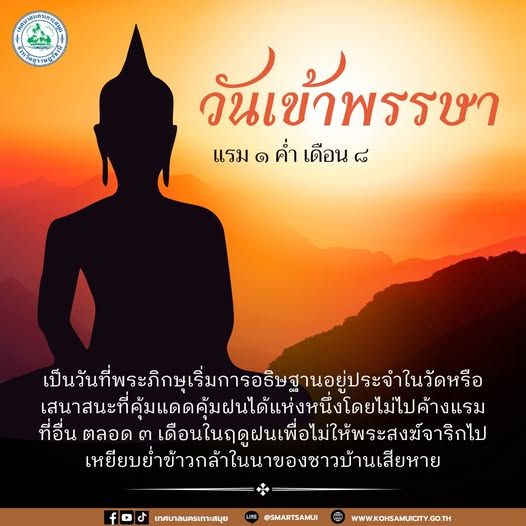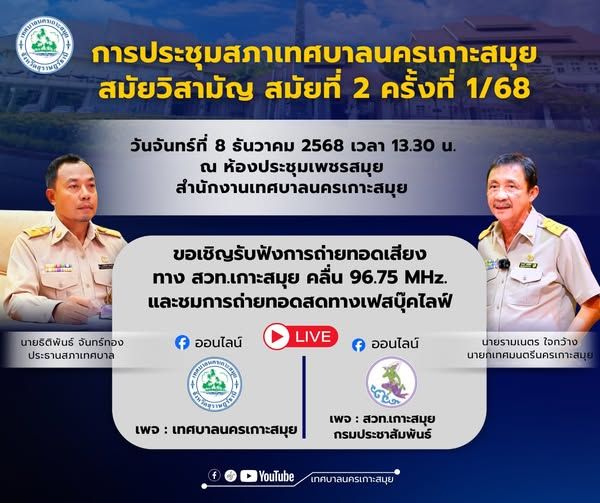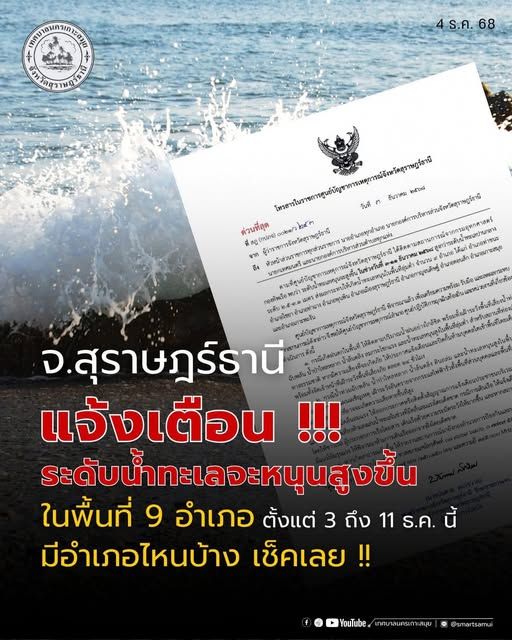Experience Khao Phansa, the start of Buddhist Lent on July 11, 2025, a time when monks begin their three-month Rains Retreat across Thailand for deep meditation and study.
Locals join in with vibrant temple offerings and renewed spiritual practices, making it an inspiring time of community, reflection, and renewal.
KhaoPhansa #BuddhistLent #ThailandCulture #SpiritualJourney #ThaiTradition #TravelThailand #BuddhistHoliday #MonkLife #TempleVisit #CulturalExperience #AsiaTravel #SacredThailand
Buddhist Lent Day, known in Thailand as “Khao Phansa,” is a significant religious observance marking the beginning of the three-month Buddhist Rains Retreat. In 2025, Khao Phansa falls on Sunday, July 11. This occasion holds deep spiritual and cultural importance throughout Thailand and several neighboring countries observing Theravada Buddhist traditions.
Meaning and Origins of Khao Phansa
The term “Khao Phansa” translates to “rains retreat,” which refers to the annual practice that originated during the lifetime of the Buddha. In ancient times, Buddhist monks would travel extensively to teach and assist people. However, the monsoon season brought concerns among villagers, as the monks’ travels could damage young rice plants and crops. Responding to these concerns, the Buddha established the tradition of monks residing in a single monastery for three months during the rainy season. This period became a time for deeper meditation, study, and spiritual renewal.
Religious Practices and Observances
Monastic Observances
During Khao Phansa, monks are required to remain at a designated temple or monastery. They dedicate themselves to meditation, scriptural study, and community service. Leaving the monastery is only permitted under certain circumstances, such as caring for ill relatives or attending to urgent monastic business.
Lay Buddhist Activities
For lay Buddhists, Khao Phansa is considered an auspicious time to practice generosity, moral discipline, and mental cultivation. Many choose to undertake observances such as:
– Offering alms and necessities to monks: Laypeople present monks with candles, robes, food, and other daily essentials needed for the three-month retreat.
– Participating in candle casting ceremonies: These ceremonies symbolize the light of wisdom and support for monks during their period of study.
– Observing extra precepts: Many Buddhists increase their spiritual practice by observing additional moral precepts, such as refraining from alcohol or abstaining from certain foods.
Cultural Significance
Khao Phansa marks a time of spiritual renewal not only for monks but also for society at large. Communities come together in merit-making activities, temple fairs, and traditional processions. It is also a common period for young men to be ordained as monks, fulfilling a rite of passage and family obligation.
Khao Phansa in Contemporary Society
While rooted in ancient tradition, Khao Phansa remains a vibrant and widely respected occasion in modern Thai society. Government offices, businesses, and schools often accommodate the holiday. Local temples organize ceremonies inviting community participation, and public awareness campaigns promote abstaining from alcoholic beverages and other vices during this period.
Related Festivals
Khao Phansa is closely linked with Asalha Puja, which commemorates the Buddha’s first sermon, usually observed one day prior to the start of Buddhist Lent. The end of the rains retreat, known as “Ok Phansa,” is observed three months later and marks the conclusion of this spiritually significant period.
Frequently Asked Questions
Frequently Asked Questions (FAQ) about Khao Phansa
What is Khao Phansa and why is it significant in Thailand?
Khao Phansa, or Buddhist Lent Day, marks the beginning of the Buddhist Rains Retreat, a three-month period starting on July 11, 2025, when monks stay at their monasteries for meditation and study. It is deeply significant in Thailand, fostering spiritual renewal and strengthening community bonds through religious and merit-making activities.
How do Thai Buddhists observe Khao Phansa?
Both monks and laypeople participate in various observances. Monks remain in their temples, focusing on meditation, study, and service. Lay Buddhists make offerings of robes, food, candles, and essentials, join in candle casting ceremonies, practice extra moral precepts, and participate in traditional processions and temple fairs.
Are there related festivals or events connected to Khao Phansa?
Yes, Khao Phansa is closely linked with Asalha Puja, which commemorates Buddha’s first sermon and is observed just before Buddhist Lent begins. The conclusion of the three-month retreat is celebrated as Ok Phansa, marking the end of this spiritually important period for both monks and the wider community.




